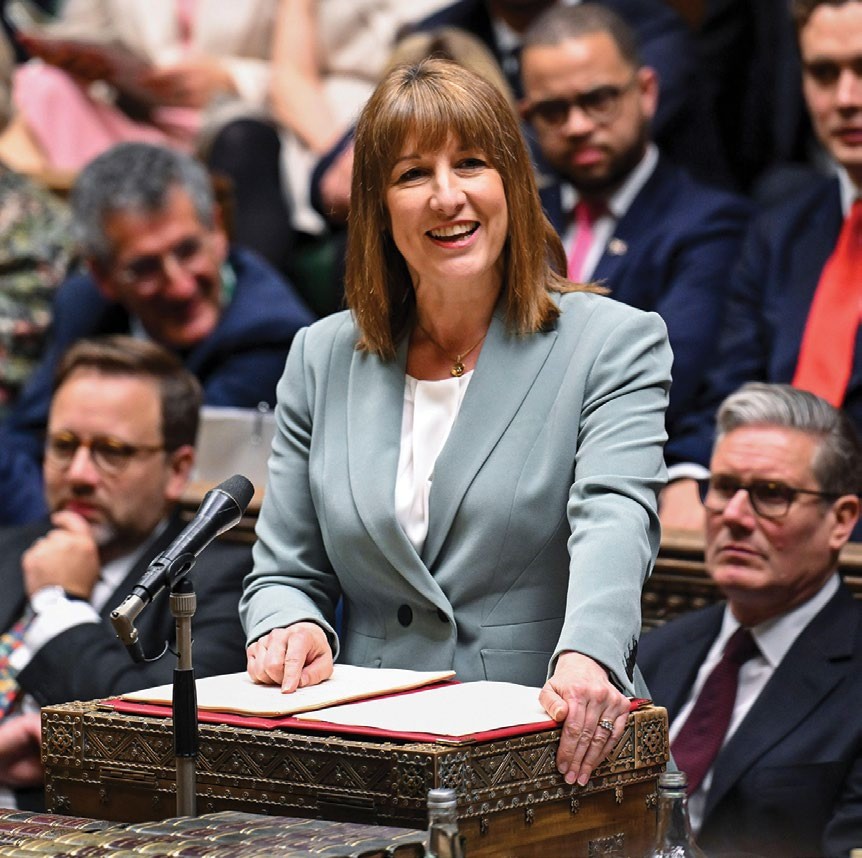The government must stand up for British businesses
The British government has forgotten how to stand up for British business, says Matthew Lynn. BP is just the latest, most glaring, example.

Get the latest financial news, insights and expert analysis from our award-winning MoneyWeek team, to help you understand what really matters when it comes to your finances.
You are now subscribed
Your newsletter sign-up was successful
Want to add more newsletters?

Twice daily
MoneyWeek
Get the latest financial news, insights and expert analysis from our award-winning MoneyWeek team, to help you understand what really matters when it comes to your finances.

Four times a week
Look After My Bills
Sign up to our free money-saving newsletter, filled with the latest news and expert advice to help you find the best tips and deals for managing your bills. Start saving today!
The rhetoric has been disgraceful. Over the last month, as oil spilled into the Gulf of Mexico, President Barack Obama has been condemning BP as if the oil firm had planned the spill from the start. The US's own role in creating the crisis by refusing to control its own oil consumption, and by insisting that more of its energy is supplied from within its own territory has been glossed over in a series of anti-foreigner tirades.
But the response hasn't been much better. David Cameron and the foreign secretary, William Hague, have been about as firm as a lettuce caught in a thunderstorm. The British government has forgotten how to stand up for British business. BP is the latest, most glaring, example.
But it is far from the only one. No one believes Britain should embark on French-style economic nationalism. But business and politics are increasingly intertwined. Our new coalition government needs to relearn the art of quietly helping this country's companies.
MoneyWeek
Subscribe to MoneyWeek today and get your first six magazine issues absolutely FREE

Sign up to Money Morning
Don't miss the latest investment and personal finances news, market analysis, plus money-saving tips with our free twice-daily newsletter
Don't miss the latest investment and personal finances news, market analysis, plus money-saving tips with our free twice-daily newsletter
BP hasn't been called British Petroleum for years, but you wouldn't know that from listening to Obama's rhetoric over the past month. The spill in the Gulf of Mexico was a terrible accident and the damage to the Gulf coastline a tragedy. But it is unfair to pin all the blame for this on BP. And it is deceitful to pretend it is all the fault of a foreign-owned company (particularly as BP has as many American shareholders as it does British ones).
In two respects, US policy is directly to blame. The Americans remain by far the largest oil consumers on the planet, both in total quantities and per head. In case you were wondering, America consumes 20 million barrels of oil a day, compared with the next biggest consumer, China, which manages to get by on 7.5 million barrels. On top of that, US policy in the last five years has been to source more of its oil from its own territory, rather than shipping the stuff in from countries that are a long way away, and which it doesn't like very much.
If you want vast quantities of oil, and you want it from US territory, there's no point complaining when energy firms start drilling for the stuff in ever-more environmentally sensitive areas. BP's contractors shouldn't have allowed the oil to spill. But it was the Americans who wanted them to drill there in the first place.
The British government, however, hasn't been making those arguments. Nor, over most of the last decade, has it been prepared to stand up for British firms. Anglo-Dutch oil giant Shell was largely driven out of its Russian energy investments by that country's government, which was determined to reclaim control of the oil industry.
Did the British government have anything to say about that? Not a word. The Australian government is proposing a punitive new tax on miners, which will hit UK-based groups such as RTZ and Anglo-American. Has the UK protested? If so, not in public. When Cadbury was trying to fend off the hostile bid from Kraft, the best our government could manage was a few weak words from the then industry minister Peter Mandelson. Why not summon the main shareholders and remind them that if this wasn't a UK firm worth backing, then it was hard to know what was? But it couldn't even stop the state-owned Royal Bank of Scotland from lending money to Kraft. Crazy.
French-style national champions wouldn't work in Britain. We don't have the kind of industrial-financial elite that moves seamlessly between government and big business. But it is hard to imagine that Nicolas Sarkozy or Angela Merkel would stand by idly and watch French or German firms get pushed around without having anything to say.
One problem, particularly with the last Labour government, was a cultural cringe. A generation of left-wing politicians felt uncomfortable with anything to do with big business. They felt equally uncomfortable supporting anything with the word 'British' attached to it. Backing FTSE firms simply wasn't the kind of thing they did.
Another issue was the divorce between big business and politics. Most of the political class are now full-time, career policy makers. They move from university to research jobs, to parliament, and then into government. Very few have had any experience of industry, or how tough it can be. They don't know how business works, or how government can help. That is as true of the Conservative Party as it is of Labour. And yet, in reality, business is getting more and more political. Environmental pressures mean that in the developed markets, firms are likely to face more regulations, more legal fights, and more lobbying from campaign groups and governments. In the emerging markets, where just about all the growth will come from over the next decade, the boundaries between government and industry are wafer thin. Sometimes they barely exist.
British businesses deserve more help and support from the government. BP would be a good place to start. But regardless of what happens to the oil firm over the next few weeks, the government should start re-learning the skill of getting behind British industry because without strong, global companies, there is very little chance of the economy ever recovering.
Get the latest financial news, insights and expert analysis from our award-winning MoneyWeek team, to help you understand what really matters when it comes to your finances.

Matthew Lynn is a columnist for Bloomberg and writes weekly commentary syndicated in papers such as the Daily Telegraph, Die Welt, the Sydney Morning Herald, the South China Morning Post and the Miami Herald. He is also an associate editor of Spectator Business, and a regular contributor to The Spectator. Before that, he worked for the business section of the Sunday Times for ten years.
-
 13 ways to get a tax-free income every year
13 ways to get a tax-free income every yearMillions more people are paying income tax as a result of frozen thresholds. But there are still more than a dozen ways to generate an income legally without handing over any of it to HMRC.
-
 When is the Spring Statement and what's expected in it?
When is the Spring Statement and what's expected in it?The Spring Statement might have less of an impact than the Budget, but the annual fiscal event is still key to understanding what is happening in the UK economy and where it’s headed